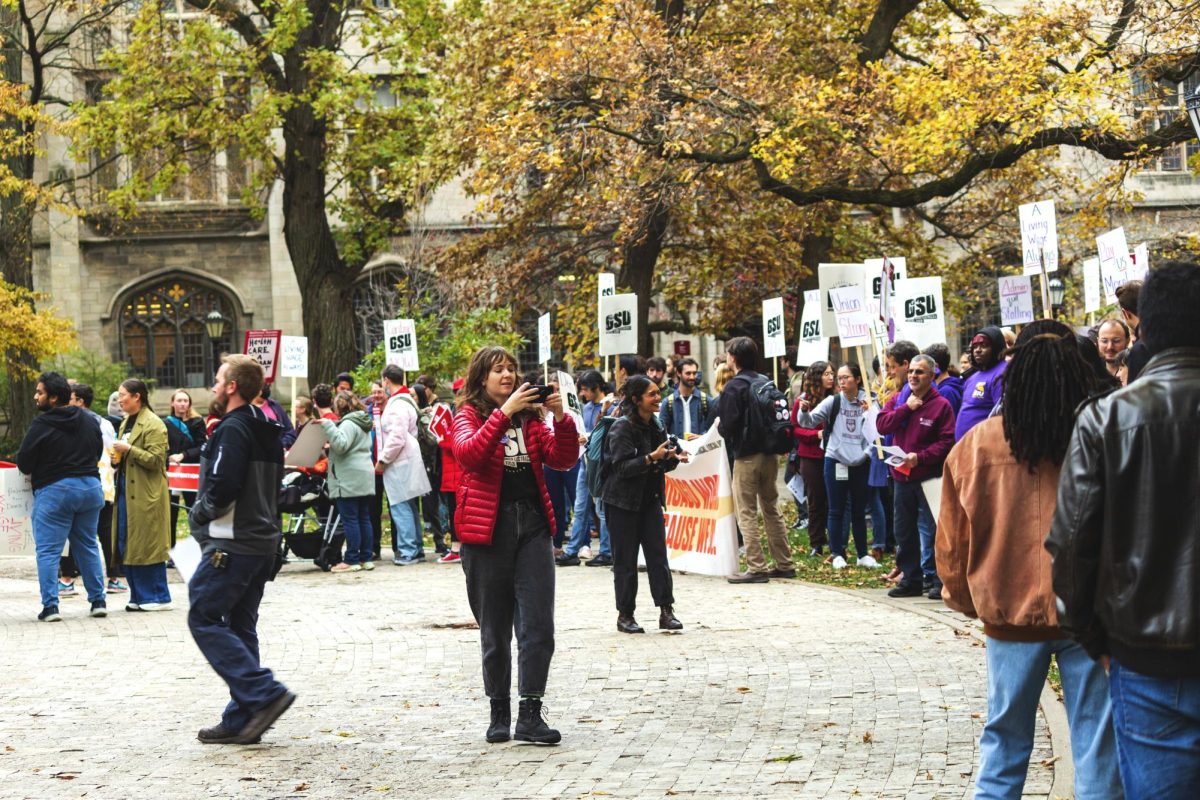University Facility Services employees represented by Service Employees International Union (SEIU) Local 73, the union for skilled trade workers at the University of Chicago, have continued to press for higher wages and improved safety policies as their collective bargaining process with the University stretches into the new year. At the heart of Local 73’s demands are efforts to make UChicago competitive with other large employers in Chicago, an element the union believes is key in a strong job market.
“When we do get employees in, most of the time there’s quite a bit of training and trying to bring people up to speed on basic skills they should have before they’re even hired,” Joe Pruim, president of the UChicago unit of SEIU Local 73, said in an interview with The Maroon. “That’s a whole extra task for that employee.”
While Faculty Forward, the union that represents non-tenure-track faculty on campus, is also a part of SEIU Local 73, Faculty Forward bargains separately from facility services employees. Facilities workers, including carpenters, painters, and engineers, bargain collectively under the Local 73 name at UChicago, which has been one of the most prominent unions on campus for decades.
Local 73 is looking to secure a number of economic—i.e., wages and benefits—and workplace policy gains in its newest contract with the University. Chief among their demands are making safety equipment, such as prescription safety glasses, accessible to workers and instituting a pay scale competitive with other universities and employers in the Chicagoland area, such as Northwestern University.
The union and its University counterparts have not yet reached an agreement on safety equipment. However, on the policy front, they did agree in the meeting that the two 15-minute breaks within an eight-hour workday in the current contract will continue to the next contract.
On the economic front, the University’s current offer stands at a 2 percent pay increase every year over the four-year life of the contract.
“That nowhere near covers inflation,” Pruim said. “For as large and prestigious of a university that we are, with one of the largest endowments out of all colleges, I believe should be competitive at a fair market value.”
Pruim says the current level of pay makes it hard to attract and retain qualified employees, meaning current employees already stretched thin by understaffing must frequently spend time training often underqualified new hires. Under the current contract, existing employees are not paid for the time they spend training new hires, which the union also hopes to change.
The University has also rejected the union’s request that it reimburse training costs for union workers, such as courses at technical schools, which would give current employees the opportunity to acquire new skills and work across different areas.
“The University is negotiating in good faith with SEIU Local 73, which represents 150 employees in the Facilities Services bargaining unit,” the University wrote in a statement to The Maroon. “We are deeply grateful for the contributions of Facilities Services employees to the work of the University, and we look forward to working constructively on a contract that will benefit employees and serve the University community.”
In their latest bargaining session with the University on December 13, the union proposed a higher percentage wage increase per year and continued discussing safety equipment for workers. The union and the University will continue negotiations in their next meeting on January 9.
“Hopefully the University can come to terms and we can have a successful contract, grow through this high inflation right now, and improve the University all around,” Pruim said before the December 13 session. “Because I just walked out of a retirement party for a painter, Tom Drane, who worked for the University for 41 years. I hope to see longevity like that for a lot of our employees.”










Free to Choose / Jan 11, 2024 at 3:05 pm
This is just a regurgitation of union claims. It belongs in the viewpoints section.